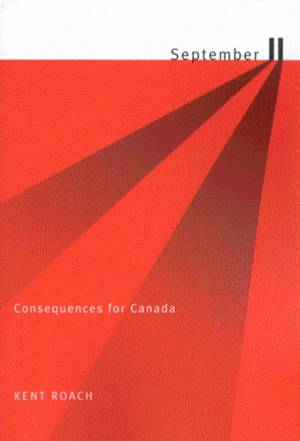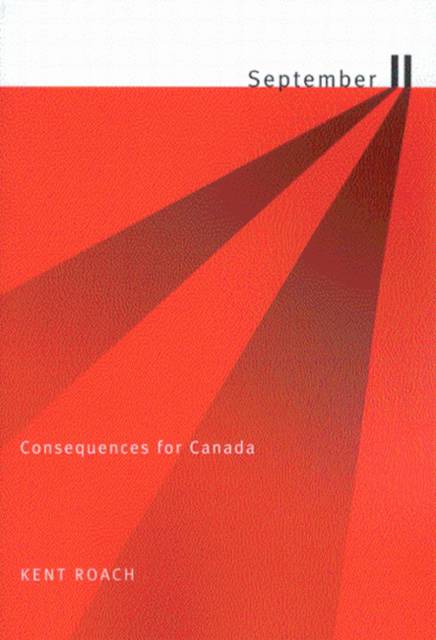
Bedankt voor het vertrouwen het afgelopen jaar! Om jou te bedanken bieden we GRATIS verzending (in België) aan op alles gedurende de hele maand januari.
- Afhalen na 1 uur in een winkel met voorraad
- In januari gratis thuislevering in België
- Ruim aanbod met 7 miljoen producten
Bedankt voor het vertrouwen het afgelopen jaar! Om jou te bedanken bieden we GRATIS verzending (in België) aan op alles gedurende de hele maand januari.
- Afhalen na 1 uur in een winkel met voorraad
- In januari gratis thuislevering in België
- Ruim aanbod met 7 miljoen producten
Zoeken
Omschrijving
In September 11 Kent Roach provides a critical examination of the consequences of September 11 for law, democracy, sovereignty, and security. He assesses a broad range of anti-terrorism measures including the Anti-terrorism Act, the smart border agreement, Canadian participation in the war in Afghanistan, changes to refugee policy, the 2001 Security Budget, and the proposed Public Safety Act. Roach evaluates both the opposition of many civil society groups to the Anti-terrorism Act and the government's defence of the law as necessary to prevent terrorism and consistent with human rights. He warns that exceptions to legal principles made to fight terrorism may spread to attempts to combat other crimes and suggests that Canadian law may not provide adequate protection against invasions of privacy or discriminatory profiling of people as potential terrorists. With reference to controversial comments about September 11 made by Prime Minister Chretien and others and the debate about "anti-Americanism," Roach examines whether September 11 has chilled Canadian democracy. He also examines the challenge September 11 presents for Canadian sovereignty on key components of foreign, military, and immigration policy and the possibility that Canadian Forces participated in violations of international law in Afghanistan. With specific reference to the threat of nuclear and biological terrorism and aviation safety, Roach argues that more emphasis on administrative and technological measures and less emphasis on criminal sanctions and military force may better protect Canadians from both terrorism and other threats to their security.
Specificaties
Betrokkenen
- Auteur(s):
- Uitgeverij:
Inhoud
- Aantal bladzijden:
- 280
- Taal:
- Engels
Eigenschappen
- Productcode (EAN):
- 9780773525856
- Verschijningsdatum:
- 22/04/2003
- Uitvoering:
- Paperback
- Formaat:
- Trade paperback (VS)
- Afmetingen:
- 154 mm x 228 mm
- Gewicht:
- 426 g

Alleen bij Standaard Boekhandel
+ 96 punten op je klantenkaart van Standaard Boekhandel
Beoordelingen
We publiceren alleen reviews die voldoen aan de voorwaarden voor reviews. Bekijk onze voorwaarden voor reviews.









